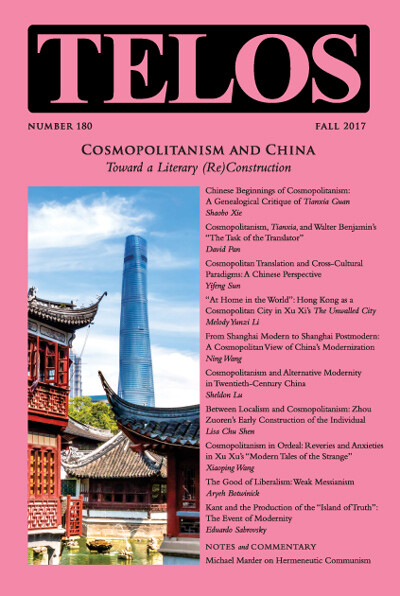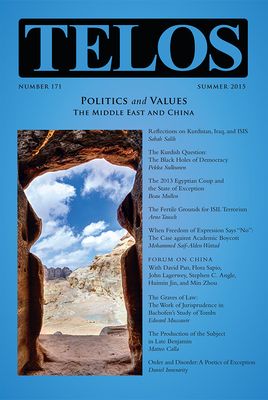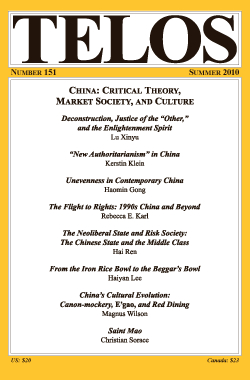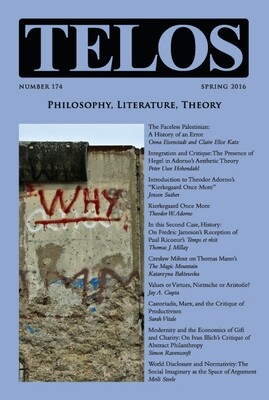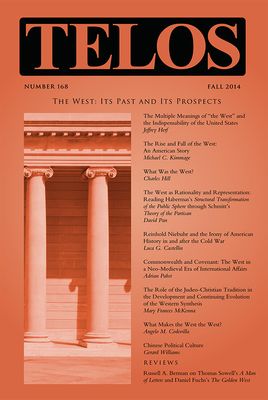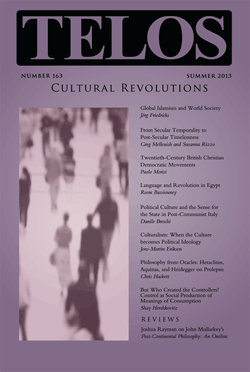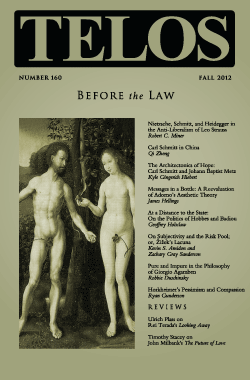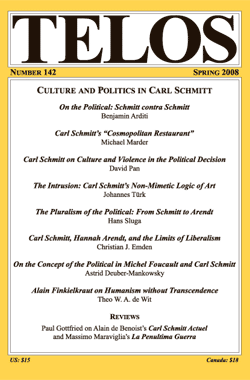Telos 180 (Fall 2017): Cosmopolitanism and China
Cosmopolitanism and China:
Toward a Literary (Re)Construction
Edited by Ning Wang
The essays collected in this issue of Telos address cosmopolitanism primarily from literary and cultural perspectives, and, more importantly, they move beyond the limits of Eurocentric or West-centric ways of thinking and modes of research by dealing exclusively with cosmopolitanism and China: its parallel relations with ancient Chinese philosophy, its impact on modern Chinese literature and intellectual thought, and its recent significance to China’s modernization and globalization.
Introduction
Ning Wang
Chinese Beginnings of Cosmopolitanism: A Genealogical Critique of Tianxia Guan
Shaobo Xie
Cosmopolitanism, Tianxia, and Walter Benjamin’s “The Task of the Translator”
David Pan
Cosmopolitan Translation and Cross-Cultural Paradigms: A Chinese Perspective
Yifeng Sun
“At Home in the World”: Hong Kong as a Cosmopolitan City in Xu Xi’s The Unwalled City
Melody Yunzi Li
From Shanghai Modern to Shanghai Postmodern: A Cosmopolitan View of China’s Modernization
Ning Wang
Cosmopolitanism and Alternative Modernity in Twentieth-Century China
Sheldon Lu
Between Localism and Cosmopolitanism: A Look at Zhou Zuoren’s Early Construction of the Individual
Lisa Chu Shen
Cosmopolitanism in Ordeal: Cultural Reveries and Political Anxieties in Xu Xu’s “Modern Tales of the Strange”
Xiaoping Wang
The Good of Liberalism: Weak Messianism
Aryeh Botwinick
Kant and the Production of the “Island of Truth”: The Event of Modernity
Eduardo Sabrovsky
Notes and Commentary
Hermeneutic Communism as (Weak) Political Phenomenology
Michael Marder
